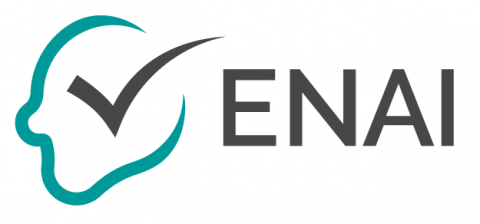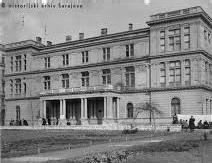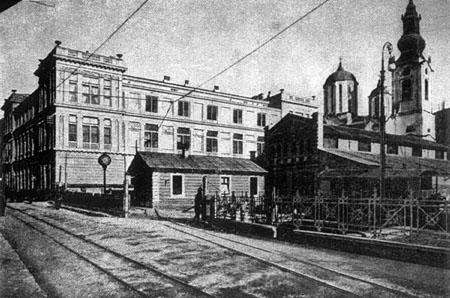Accreditations:
 |  |
Memberships:
 |  |
School of Economics and Business, University of Sarajevo, (SEBS) is the oldest and biggest higher education institution in the area of economics and management in Bosnia and Herzegovina. It was established in 1952 as a part of the University of Sarajevo. Today, SEBS is the only school of economics in B&H that owns two most prestigious international accreditations.
 School of Economics and Business, University of Sarajevo, was founded by the Regulation of the establishment of School of Economics and Business in Sarajevo, brought by the Government of the People's Republic of Bosnia and Herzegovina on July 31st, 1952. After all administrative preparations were completed, the first lecture was held on October 14th, 1952 in the building of Palace of Justice (today Faculty of Law, University of Sarajevo). In the period of SEBS establishment, there were only four faculties of economics in the former Republic of Yugoslavia, and only about 100 graduates in economics in Bosnia and Herzegovina. The first generation had 111 regular and 113 paying students (students who worked while studying).
School of Economics and Business, University of Sarajevo, was founded by the Regulation of the establishment of School of Economics and Business in Sarajevo, brought by the Government of the People's Republic of Bosnia and Herzegovina on July 31st, 1952. After all administrative preparations were completed, the first lecture was held on October 14th, 1952 in the building of Palace of Justice (today Faculty of Law, University of Sarajevo). In the period of SEBS establishment, there were only four faculties of economics in the former Republic of Yugoslavia, and only about 100 graduates in economics in Bosnia and Herzegovina. The first generation had 111 regular and 113 paying students (students who worked while studying).
The first decade of SEBS is characterized by the fact that the number of enrolled students was in line with the existing staff and material capacities of the School. The number of enrolled students was 800 on average in all the four years of study. The School's activities in this period were directed toward the development of staff basis, and material conditions were strictly defined by the available budget financing.

The second period in SEBS's development is characterized by the establishment of the first graduate and specialist studies, by a moderate increase in the number of first-time enrolled students, by the enhancement of space capacity (SEBS moves to the building where it is today, at the address Trg oslobođenja – Alija Izetbegović 1). In this period, SEBS establishes the Institute as its organizational unit. In the 1960s, SEBS establishes four educational centres for students who work while studying in Banja Luka, Mostar, Tuzla and Zenica.
The beginning of the Seventies is marked by the reform of higher education, so there is the expansion of the number of first-time enrolled students at SEBS. The number 4100 of first-time enrolled students in one school year was recorded, and the overall number of enrolled students was 7000. The earlier established centres for education in other cities (that had ceased to work due to the lack of staff and other resources), were now active again, but in formally more adequate organizational forms – departments. These departments represent the roots and nucleus of today's faculties of economics in these cities.
In this period, new concentrations are established in graduate studies, as well as different forms of life-long-learning programs. Economic Institute becomes an independent unit in 1974. Processes of intensive international exchange and cooperation are begun.
The last phase of the pre-war development of SEBS is marked by a strong activity aimed at the enhancement of conditions for adjusting to more and more strictly defined requirements of the environment and market. With the aim of creating a study that is adjusted to various needs of economics and society, Economic-Commercial College becomes a part of School of Economics and Business in 1985. This provides students with the possibility of studying in levels.
An important strategic step toward spreading and developing research activities at SEBS was the establishment of its own Institute in 1984. The basic task of the Institute was to unify and institutionalize various research activities of the teaching staff. Intensive economic reforms in the 1980s were bringing the economic system of former Yugoslavia closer to market economy, and this required economists to have new knowledge and new skills. Another important step in organizational adjustment to the newly established conditions is SEBS's establishment of Business Academy in 1988.
Since its establishment on, SEBS worked in the most difficult conditions in the period 1992 – 1995 due to the war. However, working conditions did not cease for a single day during this period, and numerous teachers, associates and students were daily fulfilling their academic duties under a constant fear of bombardment. In the period 1992 – 1995, 278 students graduated, 10 students got their MA degrees, one specialist paper and four PhD theses were defended. The overall number of enrolled students was 7338.
In August 1994, Scientific-Teaching Council adopted a new curriculum for graduate study in Business Economics with the following programs: Financial Management and Marketing Management.
SEBS had numerous visits in this period, including guests, journalists and other significant persons. Among them, especially prominent were the visit of USA Ambassador Viktor Jakovič (March 2nd, 1995) and the visit of members of B&H Presidency and other high officials. Despite the weak communication with the parts of the country outside Sarajevo and despite bad working conditions, scientific-research and consulting work were adequately represented. SEBS publishing issued a number of books, publications, manuals and guides for teaching process. Seven books were published: Political Economics, Fahrudin Šebić, PhD; Sociology, Nijaz Mesihović, PhD; Small Business Management, Boris Tihi, PhD (co-author and editor); Mathematics, Blagota Lučić, PhD; How to establish and run a private enterprise, Milenko Dostić, PhD; Computers and their usage, Zlatko Lagumdžija, PhD; Economics of market enterprises, Nikola Grabovac, PhD.
During the period of war, both organizational units of SEBS were active: Business Academy and Institute were organizing educational programs and writing research and consultive papers for numerous companies.
The beginning of a new form of modern education in management and use of information technologies at SEBS happened in September 1995 by the establishment of Centre for Management and Information Technologies (MIT Centre) which was made in collaboration with Soros Foundation – Fond Open Society of B&H. In 1999, MIT Centre had its first interactive distance learning program. In 2003, MIT Centre became the official institute of World Economic Forum in Davos.
In the period of war, SEBS Library suffered losses. Those who helped to renew the Library room and its archives were WUS Austria, Fond Open Society and OPA-US Embassy. The biggest book donation of modern American literature was made by SABRE Foundation – USA. Idea project „Modernization of SEBS Library“ was finished at the beginning of 1998. Cooperation with partner universities in international projects Tempus and Phare helped the realization of a bigger number of study visits abroad, which was very important considering that this was the period of shutdown and isolation. Intensive collaboration and communication with faculties and universities abroad led to the establishment of SEBS International Office in 1999.
The period from 1996 on is characterized by an intense renewal of the School's staff and infrastructure, as well as by the normalization of the teaching process. Regular teaching process in Zenica was established as part of dislocated lectures at SEBS. In the same year, the first generation of students enrolled a two-year study program in Sarajevo Business School. The aim of this program was to meet the need for education in the area of special programs outside the strictly formal four-year study programs. This is also the period when organized student activities began. Student body – SEBS Student Council - was established, and in 1993, B&H gained its membership status as an independent country in the international student organization AIESEC. B&H AIESEC head office is in Sarajevo, at School of Economics and Business.
First decade of the 21st century was marked by the expansion of the School's development in various aspects. Striving to make its curriculum and syllabus as modern as possible, as well as to intensify steps towards the internationalization and international recognition of its degrees, the School was the first in Bosnia&Herzegovina to adopt and implement a curriculum based on the European Credits Transfer System – ECT in 2001/2002. With the aim of enhancing the methods of scientific-research amd teaching-pedagogical work, using a developed information infrastructure, the School established a distance learning program in cooperation with Layola University Chicago.
Possibilities for SEBS's further development were especially improved by establishing a regional centre of global network for distance learning (Global Distance Learning Network – GDLN), whose forming was arranged with Alberta University from Canada and The World Bank. Regional head office of GDLN Centre is located at SEBS. In 2000, Layola University Chicago and the School enrol a generation of students from B&H who complete specialized courses in computer sciences online. In 2002, distance learning is used to assist inclass lectures and teaching materials are available online. In 2006, the School introduces a new form of study, which enables working students and all others who for some reason seek a more flexible way of studying online – Distance Learning (DL). In 2012, teaching materials are further improved via audio recordings, interactive and multimedia materials. In order to ensure a continuous monitoring process regarding the working standards, in 2000 the School realized the project „Self-evaluation of work at School of Economics and Business in Sarajevo“ as a pilot program of the necessary reform of educational process that is in line with the principles and standards of universities in Western countries, primarily in European Union. Since then, the School has been organizing anonymous polls for students every year which enables them to state their attitudes and opinions regarding the structure and quality of lectures, seminars and exams.
Realization of teaching activities was made via six departments: Department of Economic Theory and Policy, Department of Finance and Accounting, Department of Informatics, Department of Quantitative Economics, Department of Marketing, Department of Management. Continuous work on the School's organizational structure and a completely new approach to the organization and direct realization of the teaching process are followed by thorough changes in normative activities of the School. In line with this, the School created and adopted new School Regulations in autumn 2001, based on which it then created a new regulation framework which controls vital matters of life and work. The Institute made and realized over 150 contracts by 2002 in the areas of macroeconomic and microeconomic research, investment field, enterprise development, programs of privatization, organization of enterprises and banks, consulting services, etc. By 2002, Business Academy realized a great number of programs in the area of life-long-learning, organizing a range of short seminars for business managers. One of the most prominent programs was a seminar for small businesses „Small Business School“, which had around 200 participants. Due to the great interest for this kind of education and consulting showed by the representatives of small private businesses, Business Academy opened its own Small Business Centre and organized courses of Business English for all levels and special purposes. Because of the increased search for textbooks and other teaching publications in the post-war period, professors and associates of the School published over 30 different publications in the period 1999-2000, mostly using School of Economics and Business as their publisher. In 2000, a special organizational unit „Publishing Services“ was established.
On October 10th, 2001, the School opened a modern Library and Information Centre thanks to the realization of the project „Modernization of the Library at School of Economics and Business“ in 1998, with the support of the European Union. The Library had around 110000 books and over 2000 journals available at the time. The School's intensive development was also realized thanks to the strong enhancement of the teaching staff, whose number rose from 65 teachers and associates in 1996/97 academic year to 97 in 2001/2002 academic year. In this period, great efforts were made regarding the School's informatization. A special emphasis was put on introducing informatic approach in the realization of most teaching courses. In 2004, the School organizes the first MBA study program, realized in cooperation with University of Delaware (as part of the project USAID/SGSB). By 2010, two more MBA programs were established: MBA study program in cooperation with University of Torino (as part of Tempus project) and MBA study program in cooperation with Griffith College Dublin. In 2005/2006, the School starts with a new concept of studies (3+2+3), based on the principles of the Bologna Declaration. In line with this concept, the School redefines the existing and creates new curricula. By innovating the curricula and adjusting them to modern tendencies in the development of science and practice in economics and business, and by a more prominent use of information technologies in teaching process and the enhancement of scientific-research work, the School begins accreditation processes of its curricula at the international level.
In this period, great innovations in the areas of study programs and ways of teaching were made. In 2006, a new way of studying was introduced based on Distance Learning teaching method. In 2008, the School launched the first international undergraduate study program in the area of business – Sarajevo Business School in collaboration with Griffith College Dublin. In the same year, the School also introduced international master programs in cooperation with Faculty of Economics, University of Ljubljana, and Faculty of Economics, University of Zagreb. In order to keep up with the world's trends, the School organized its processes and communication through formal offices and bodies that were established in this period: Public Relations Office (2004), Career Development Centre (2005), Teaching Staff Development Centre (2005), Business Advisory Board (2005), Alumi Association (2008), Quality Management Office (2008).
Quality management system becomes very prominent in this period. In 2008, the School becomes certified according to ISO BAS 9001:2008 norm by Bureau Veritas certification agency, and at the same time, it starts accreditational process with international accreditation agencies – AACSB, EFMD, AQA. Three SEBS publications are included in relevant bibliographic bases: The South East European Journal of Economics and Business, Sarajevo Business and Economics Review and ICES Conference Proceedings.
The last decade of the School's work is was marked by earning international accreditations for quality, which enables the maintenance of high quality standards for students, employees and partners of the School. The School was granted its first accreditation in 2011 for Curriculum Management and IT system of support to the teaching process by Austrian Agency for Quality Assurance AQA.
The second accreditation, EPAS, is a program accreditation and was awarded in 2012 for undergraduate program package held in English and called Financial Management & Marketing Management by European Foundation for Management Development – EFMD. Third accreditation is institutional and was granted to SEBS in 2015 by American Accreditation Agency The Association to Advance Collegiate Schools of Business – AACSB. In 2012, SEBS was the first in B&H to establish Centre for Islamic Economics, Banking and Finance (CIEBF), and along with it, a master study program in English „Islamic Banking“ in cooperation with Bolton University in Great Britain.
Today, SEBS is the leading higher education institution in the area of economics and business in Bosnia and Herzegovina. SEBS is active and relevant in international environment and develops partnerships with institutions from around the world. The School is dedicated to excellence in teaching, studying and research, as well as in creating leaders in various disciplines who can contribute to the development of B&H society and international community.
In 2019, the School had 151 employees, and the number of all students who have completed their study programs at all levels from its foundation on was 27015. SEBS proudly stresses that its professors: Hasan Hadžiomerović, PhD, Boris Tihi, PhD, Muris Čičić, PhD, and Fikret Čaušević, PhD, have been elected as members of the Academy of Sciences and Arts of Bosnia and Herzegovina. SEBS today, through its employees and various activities, takes active participation in the creation of the economic thought in B&H. The most prominent events in the context of SEBS's social activity are Economic Forum, Sarajevo Innovation Summit, International Conference ICES, International Conference in Official Statistics (ICOS), CEO Conference for students and high-school students, and many other smaller educational events that SEBS organizes in compliance with its MISSION and VALUES.